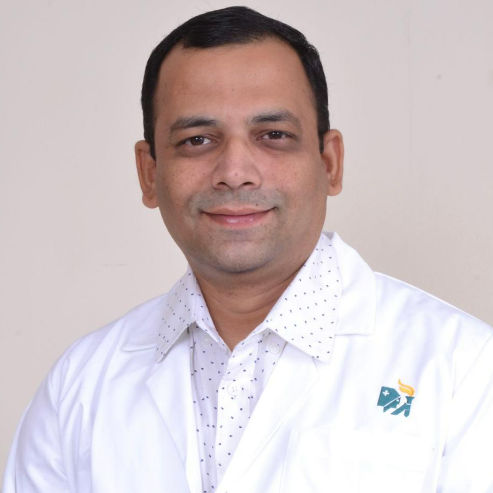Understanding Trans Fats and Avoidance Strategies
Know about trans fats, what they are, whether they are harmful, common foods containing trans-fats, healthy alternatives to trans fats and how to avoid trans fats.

Written by Dr. J T Hema Pratima
Reviewed by Dr. D Bhanu Prakash MBBS, AFIH, Advanced certificate in critical care medicine, Fellowship in critical care medicine
Last updated on 29th Aug, 2025

Introduction
Trans fats are a type of unhealthy fat that can harm your heart and overall health. While they may make food taste better and last longer, they pose serious health risks. This article will help you understand what trans fats are, why they are harmful, and how you can avoid them to stay healthy.
What Are Trans Fats?
Trans fats (or trans fatty acids) are artificially created fats made by adding hydrogen to liquid vegetable oils to make them solid at room temperature. This process, called hydrogenation, increases the shelf life of foods but also makes them unhealthy.
There are two types of trans fats:
1. Artificial trans fats – Found in processed foods like fried snacks, baked goods, and margarine.
2. Natural trans fats – Found in small amounts in meat and dairy from animals like cows and sheep. These are less harmful than artificial trans fats.
Consult a General Physician for Personalised Advice
Why Are Trans Fats Harmful?
Trans fats are dangerous because they:
- Increase bad cholesterol (LDL) – This clogs arteries and raises the risk of heart disease.
- Lower good cholesterol (HDL) – HDL helps remove bad cholesterol, so reducing it worsens heart health.
- Cause inflammation – This can lead to diabetes, stroke, and other chronic diseases.
- Increase heart disease risk – Studies show that even small amounts of trans fats can harm your heart.
Common Foods Containing Trans Fats
Many processed and fried foods contain trans fats. Watch out for:
- Fried foods – French fries, fried chicken, samosas, and other deep-fried snacks.
- Baked goods – Cookies, cakes, pastries, and doughnuts.
- Margarine and shortening – Often used in cooking and baking.
- Packaged snacks – Chips, crackers, and microwave popcorn.
- Ready-to-eat foods – Frozen pizzas, pies, and instant noodles.
Always check food labels for terms like "partially hydrogenated oils"—this means the product contains trans fats.
How to Avoid Trans Fats?
Here are some simple ways to reduce or eliminate trans fats from your diet:
1. Read Food Labels Carefully
- Look for "0g trans fats" on the nutrition label.
- Check the ingredients list for "partially hydrogenated oils"—even if the label says "0g trans fats," small amounts may still be present.
2. Choose Healthy Cooking Oils
- Use olive oil, canola oil, sunflower oil, or mustard oil instead of hydrogenated oils.
- Avoid reusing cooking oil multiple times, as this can create harmful fats.
3. Eat More Whole, Unprocessed Foods
- Fresh fruits, vegetables, whole grains, nuts, and seeds are naturally trans-fat-free.
- Opt for homemade meals instead of packaged or fast food.
4. Limit Fast Food and Fried Snacks
- Restaurant and street foods often use unhealthy oils for frying.
- Choose grilled, steamed, or baked options when eating out.
5. Be Mindful of Baked Goods
- Many store-bought cakes and cookies contain trans fats.
- Try baking at home using healthier fats like butter or coconut oil.
Healthier Alternatives to Trans Fats
Instead of trans-fat-rich foods, try these healthier options:
- Snacks: Fresh fruits, nuts, yoghurt, or roasted chana instead of chips.
- Spreads: Natural peanut butter or avocado instead of margarine.
- Desserts: Dark chocolate or homemade sweets with natural ingredients.
When to See a Doctor?
If you have been consuming a lot of trans fats and experience symptoms like:
- Chest pain
- Shortness of breath
- High cholesterol levels
- Unexplained weight gain
It’s good to consult a doctor. Regular health check-ups can help monitor cholesterol and heart health.
Final Thoughts
Trans fats are harmful and should be avoided as much as possible. By reading food labels, choosing healthier oils, and eating whole foods, you can protect your heart and overall well-being. Small changes in your diet today can lead to a healthier future.
Consult a General Physician for Personalised Advice
Consult a General Physician for Personalised Advice

Dr. Swathi Reddy Perugu
General Physician/ Internal Medicine Specialist
7 Years • MBBS, MD (General Medicine)
Hyderabad
Health plus, Hyderabad

Dr. Chethan T L
General Physician/ Internal Medicine Specialist
5 Years • MBBS, MD, DNB (General Medicine)
Bengaluru
Apollo Medical Center, Marathahalli, Bengaluru

Dr. Rajib Ghose
General Practitioner
25 Years • MBBS
East Midnapore
VIVEKANANDA SEBA SADAN, East Midnapore

Dr. Karan Goel
General Physician/ Internal Medicine Specialist
11 Years • MBBS, MD (Paediatrics)
Kolkata
Little Steps Clinic, Kolkata

Dr. Kiran Macha
General Physician/ Internal Medicine Specialist
21 Years • MBBS,MD General Medicine
HYDERABAD
Sri Clinic, HYDERABAD
(100+ Patients)
Consult a General Physician for Personalised Advice

Dr. Swathi Reddy Perugu
General Physician/ Internal Medicine Specialist
7 Years • MBBS, MD (General Medicine)
Hyderabad
Health plus, Hyderabad

Dr. Chethan T L
General Physician/ Internal Medicine Specialist
5 Years • MBBS, MD, DNB (General Medicine)
Bengaluru
Apollo Medical Center, Marathahalli, Bengaluru

Dr. Rajib Ghose
General Practitioner
25 Years • MBBS
East Midnapore
VIVEKANANDA SEBA SADAN, East Midnapore

Dr. Karan Goel
General Physician/ Internal Medicine Specialist
11 Years • MBBS, MD (Paediatrics)
Kolkata
Little Steps Clinic, Kolkata

Dr. Kiran Macha
General Physician/ Internal Medicine Specialist
21 Years • MBBS,MD General Medicine
HYDERABAD
Sri Clinic, HYDERABAD
(100+ Patients)

 (1).webp)